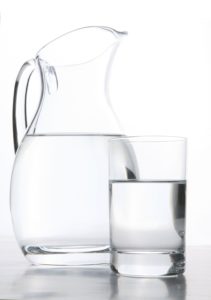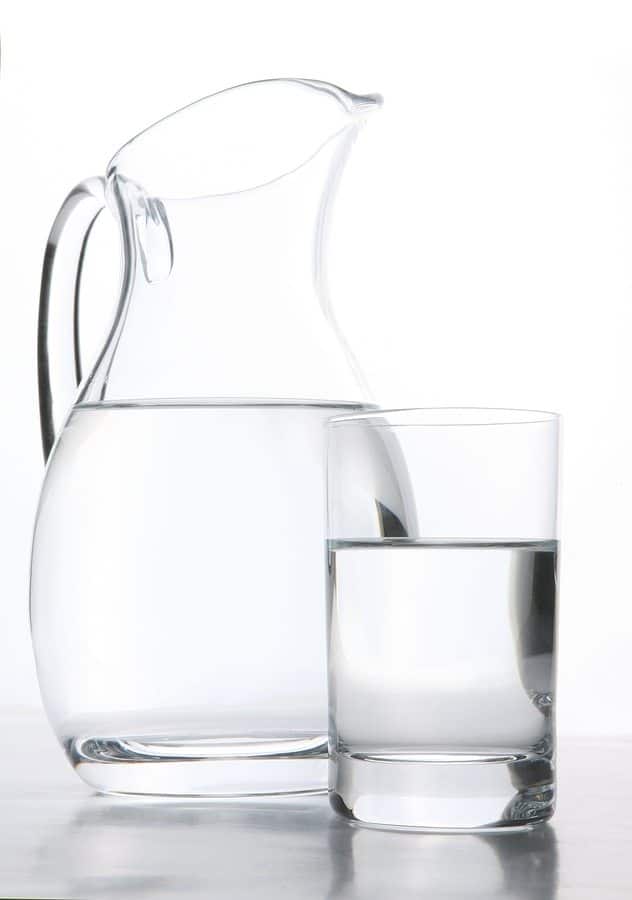
People have been told in numerous ways and using various mediums about the importance of drinking water. But when you can barely get to the bathroom on time, adding more water to your system tends to appear contradictory to your needs. As people age, this tendency increases, and your parent may be one of those suffering the ill effects of dehydration for just this reason. Understanding why and how the body reacts to the water it is given may help them understand the need to include this vital, life-sustaining liquid in their diet.
Why Those with Incontinence Actually Drink More Water.
While challenging to understand, drinking more water may actually help incontinence issues while restricting water intake has been shown to have a negative effect on the frequency and severity of urinary incontinence. The body must have water to operate effectively. Lack of water can irritate the lining of the bladder and cause an increase in urination. Drinking alcohol and caffeinated drinks can irritate the lining of the bladder and cause increased urination as well. Water keeps the urinary tract and kidneys healthy. Audrey Hepburn said it well when she stated, “Water is life, and clean water means health.”
What the Body Does with Water.
Every cell, organ, and tissue requires water to operate at its peak potential. It flows through your blood, delivering oxygen and nutrients to cells and organs. It keeps your body at the correct temperature for survival, protects the spinal cord and acts as a lubricant for your joints. It helps flush out toxins and aids in digestion. The human body can survive without food for approximately three weeks. The longest anyone has survived without water is 10 days, though the average recorded survival time span is 3 days.
What Happens When the Body Doesn’t Get Enough Water.
When the body doesn’t get enough water, the blood, which is 92 percent water, becomes thicker. Imagine a stream of flowing water; now add some mud and you get an idea of what happens to the bloodstream when the body becomes dehydrated. This, in turn, leads to high blood pressure as well as higher levels of cholesterol. Lack of water also creates digestive disorders, fatigue, and joint pain. Memory functions such as attention and concentration are reduced. Lack of water is one of the main causes of acute kidney injury as well as constipation.
How to Help your Parent Stay Hydrated.
Making sure that they have a glass of water by their side throughout the day will help to ensure that they remain hydrated. If your parent has never really relished the taste of water, consider adding some slices of lemon, lime, orange, or a few berries. Sometimes the simple act of adding ice cubes can make a dull glass of water a refreshing beverage. Herbal teas are also a good way to add water to their diet as well as soups and foods with high water content such as watermelon or celery. A straw or special drinking cup may make it easier for your parent to sip their water throughout the day.
Elder Care Provider.
An elder care provider can assist with the daily activities of living. They can also ensure your loved one has a glass of water by their side and prepare meals that are healthy and life-affirming. In addition, they can provide the companionship and care that motivates a person to maintain an active, healthy lifestyle.
If you or an aging loved one needs elder care in Davis, CA, remember Senior Home Care Services. Call us at (916) 514-7006 for more information.
Resources
https://www.livescience.com/32320-how-long-can-a-person-survive-without-water.html
https://www.nutrition.org.uk/nutritionscience/life/dehydrationelderly.html
- Kitchen Tools That Make Eating Easier for Seniors - April 25, 2025
- Helping Seniors Reduce Health Anxiety - April 18, 2025
- Why Should Seniors Consider Adding Soy to Their Diets? - April 7, 2025


